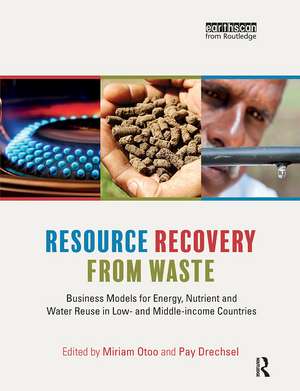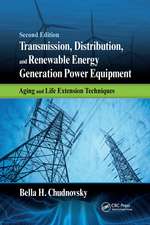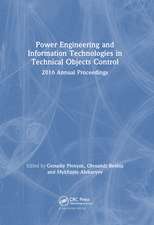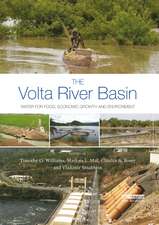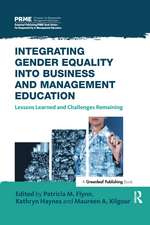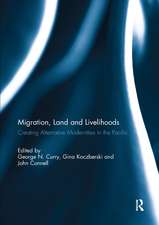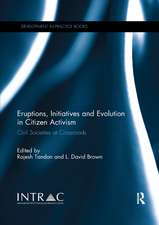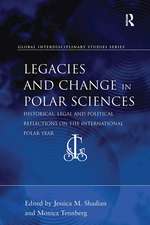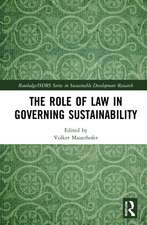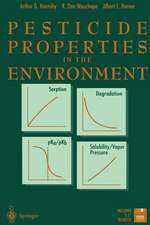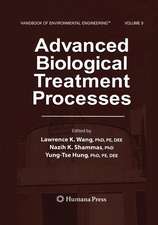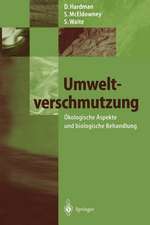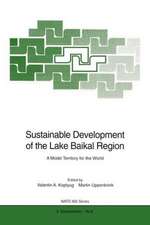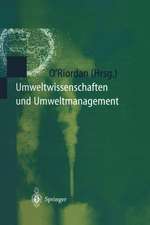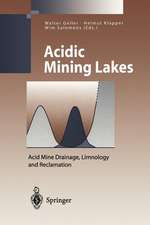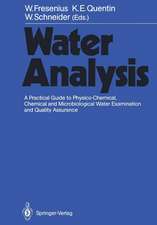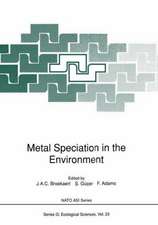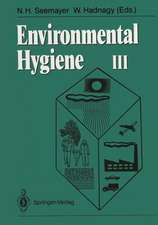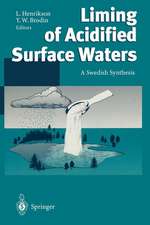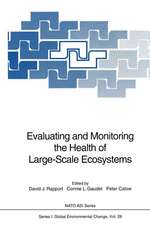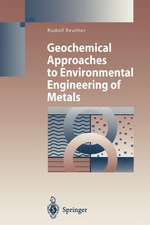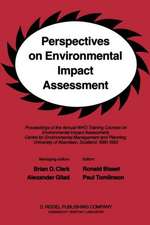Resource Recovery from Waste: Business Models for Energy, Nutrient and Water Reuse in Low- and Middle-income Countries
Editat de Miriam Otoo, Pay Drechselen Limba Engleză Paperback – 31 mar 2021
While many RRR projects fully depend on subsidies and hardly survive their pilot phase, hopeful signs of viable approaches to RRR are emerging around the globe including low- and middle-income countries. These enterprises or projects are tapping into entrepreneurial initiatives and public ̶ private partnerships, leveraging private capital to help realize commercial or social value, shifting the focus from treatment for waste disposal to treatment of waste as a valuable resource for safe reuse.
The book provides a compendium of business options for energy, nutrients and water recovery via 24 innovative business models based on an in-depth analysis of over 60 empirical cases, of which 47 from around the world are described and evaluated in a systematic way. The focus is on organic municipal, agro-industrial and food waste, including fecal sludge, supporting a diverse range of business models with potential for large-scale out-and up-scaling.
Preț: 566.81 lei
Preț vechi: 666.83 lei
-15% Nou
Puncte Express: 850
Preț estimativ în valută:
108.46€ • 111.89$ • 90.51£
108.46€ • 111.89$ • 90.51£
Carte tipărită la comandă
Livrare economică 26 martie-09 aprilie
Preluare comenzi: 021 569.72.76
Specificații
ISBN-13: 9780367778774
ISBN-10: 0367778777
Pagini: 832
Dimensiuni: 189 x 246 x 42 mm
Greutate: 2.29 kg
Ediția:1
Editura: Taylor & Francis
Colecția Routledge
Locul publicării:Oxford, United Kingdom
ISBN-10: 0367778777
Pagini: 832
Dimensiuni: 189 x 246 x 42 mm
Greutate: 2.29 kg
Ediția:1
Editura: Taylor & Francis
Colecția Routledge
Locul publicării:Oxford, United Kingdom
Public țintă
Academic, Postgraduate, Professional, and Professional Practice & DevelopmentCuprins
Foreword Part I Business models for a circular economy: Introduction 1. Business Models for a Circular Economy: Linking Waste Management and Sanitation with Agriculture 2. Defining and Analysing RRR Business Cases and Models Part II Energy Recovery from Organic Waste 3. Business Models on Solid Fuel Production from Waste 4. Business Models for in-house Biogas Production for Energy Savings 5: Business Models for Sustainable and Renewable Power Generation 6. Business Models on Emerging Technologies/Bio-fuel Production from Agro-Waste Part III Nutrient and Organic Matter Recovery 7. Business Models on Partially Subsidized Composting at District Level 8. Business Models on Subsidy-Free Community Based Composting 9. Business Models on Large-Scale Composting for Revenue Generation 10. Business Models on Nutrient Recovery from own Agro-Industrial Waste 11. Business Models on Compost Production for Sustainable Sanitation Service Delivery 12. Business Models for Outsourcing Fecal Sludge Treatment to the Farm 13. Business Models on Phosphorus recovery from Excreta and Wastewater Part IV Wastewater for Agriculture, Forestry and Aquaculture 14. Business Models on institutional and regulatory pathways to cost recovery 15. Business Models beyond Cost Recovery 16. Business Models for Cost sharing and Risk Minimization 17. Business Models on Rural-Urban Water Trading 18. Business Models for increasing Safety in Informal Wastewater Irrigation 19. The Enabling Environment and Finance of Resource Recovery and Reuse Frugal Innovations for the Circular Economy – An Epilogue
Notă biografică
Miriam Otoo is a Research Economist, leading the Research Group on Resource Recovery and Reuse at the International Water Management Institute (IWMI).
Pay Drechsel is a Principal Researcher at the International Water Management Institute (IWMI), leading IWMI’s Strategic Program, on Rural-Urban Linkages and the related Research Flagship of the CGIAR Research Program on Water, Land and Ecosystems (WLE).
Pay Drechsel is a Principal Researcher at the International Water Management Institute (IWMI), leading IWMI’s Strategic Program, on Rural-Urban Linkages and the related Research Flagship of the CGIAR Research Program on Water, Land and Ecosystems (WLE).
Recenzii
"The catalogue fills a significant gap in the literature and should prove useful not only for today’s investors and policy makers but also for the curricula of engineering, economics, environmental and business schools. This will help sensitize the next generation of decision makers to the opportunities inherent in the Circular Economy." - taken from the Foreword, Guy Hutton, Senior Advisor at UNICEF, and previously a Senior Economist at the World Bank
"It is my strong belief that this handbook is a vital resource for all those seeking to help the world grow sustainably and equitably through the 21st century and beyond. I am confident that it will soon become the standard reference for all those who study and practice these important issues, in developed and developing countries alike." - taken from the Epilogue, Professor Jaideep Prabhu, Professor of Business and Enterprise at the Judge Business School at the University of Cambridge, UK, and author of Jugaad Innovation (Wiley, 2012)
"It is my strong belief that this handbook is a vital resource for all those seeking to help the world grow sustainably and equitably through the 21st century and beyond. I am confident that it will soon become the standard reference for all those who study and practice these important issues, in developed and developing countries alike." - taken from the Epilogue, Professor Jaideep Prabhu, Professor of Business and Enterprise at the Judge Business School at the University of Cambridge, UK, and author of Jugaad Innovation (Wiley, 2012)
Descriere
Humans generate millions of tons of waste every day. This book shows how Resource Recovery and Reuse (RRR) could create livelihoods, enhance food security, support green economies, reduce waste and contribute to cost recovery in the sanitation chain.
